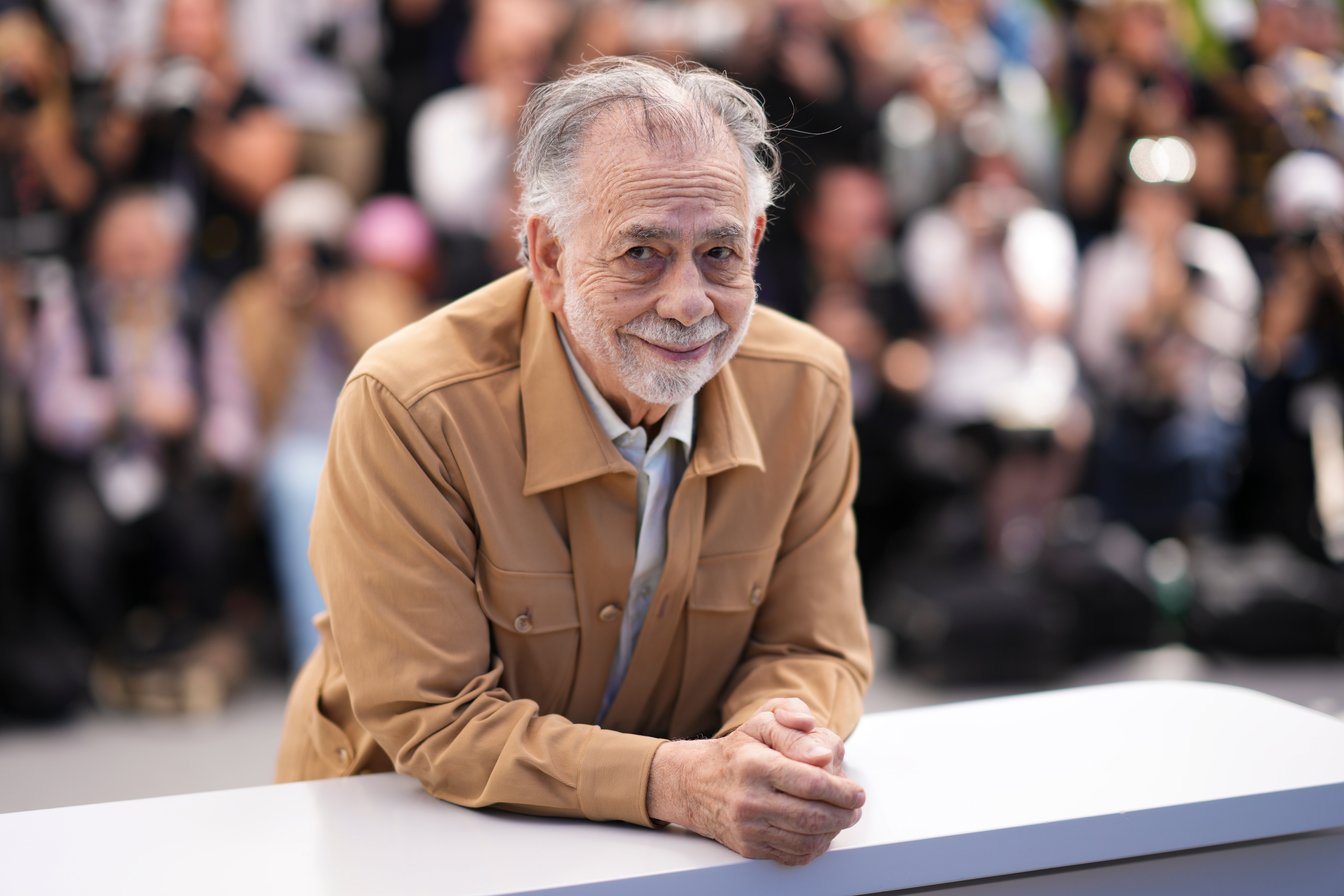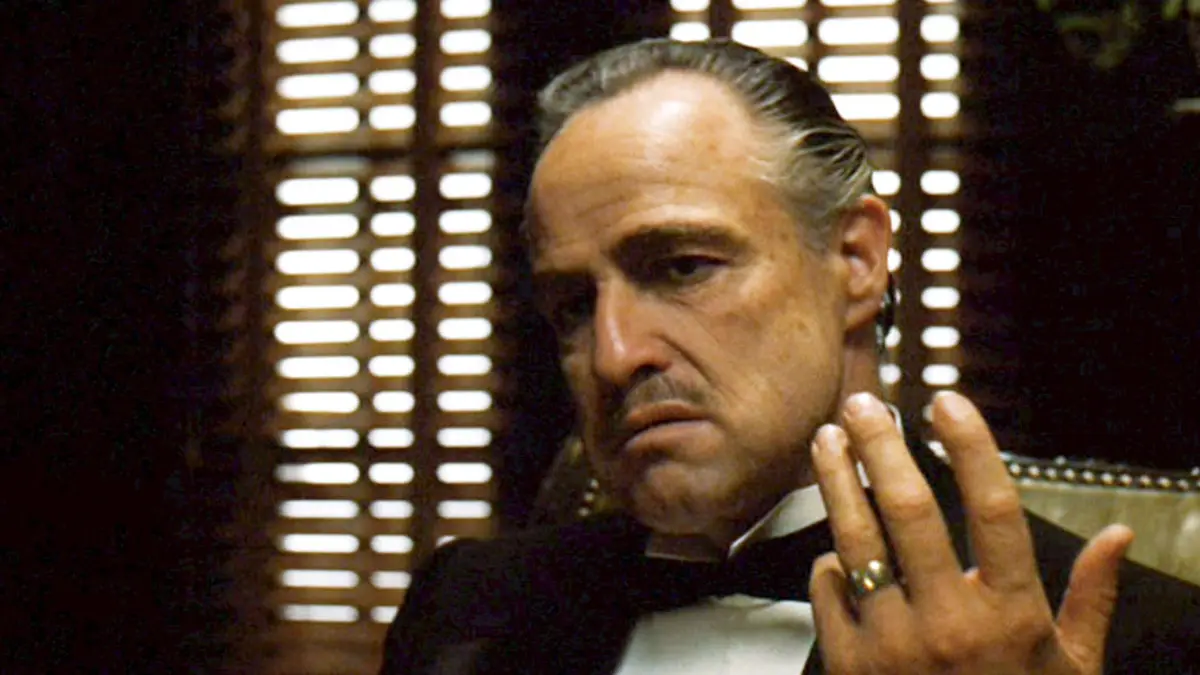Francis Ford Coppola reveals the unexpected reason The Godfather became a classic
The Oscar-winning director says it wasn’t the mob violence or Marlon Brando’s performance that made the 1972 film a hit – but something far more domestic

Your support helps us to tell the story
From reproductive rights to climate change to Big Tech, The Independent is on the ground when the story is developing. Whether it's investigating the financials of Elon Musk's pro-Trump PAC or producing our latest documentary, 'The A Word', which shines a light on the American women fighting for reproductive rights, we know how important it is to parse out the facts from the messaging.
At such a critical moment in US history, we need reporters on the ground. Your donation allows us to keep sending journalists to speak to both sides of the story.
The Independent is trusted by Americans across the entire political spectrum. And unlike many other quality news outlets, we choose not to lock Americans out of our reporting and analysis with paywalls. We believe quality journalism should be available to everyone, paid for by those who can afford it.
Your support makes all the difference.Francis Ford Coppola has revealed the unexpected reason he believes The Godfather became one of the most successful films of all time – and it has nothing to do with mobsters, violence, or even Marlon Brando.
The 85-year-old director, whose 1972 gangster epic won three Academy Awards and is widely regarded as one of the greatest films ever made, credits something far more domestic for its success: children.
Coppola shared his theory in an interview with chef Ruth Rogers on the latest episode of her podcast, Ruthie’s Table 4, in which they discussed food, family, and filmmaking.
“Although I must say that the reason I'm convinced that The Godfather was successful was because it was the first gangster film that had a lot of kids running around in the scenes,” Coppola said. “Gangster pictures didn't have kids. But of course, at an Italian wedding, there are kids sliding around everywhere.”
Starring Al Pacino, James Caan, Diane Keaton, and Robert Duvall, The Godfather was an instant classic, earning 11 Oscar nominations and winning Best Picture and Best Actor for Brando’s iconic performance as Don Vito Corleone.
While its gripping storytelling, brutal violence, and powerhouse performances have been credited for its enduring legacy, Coppola believes that its grounding in authentic Italian-American culture helped set it apart from earlier Mafia films.
Food, he suggests, also played a key role.

In the conversation, which took place at her acclaimed River Café restaurant in London, Rogers recalled how The Godfather was the first time she saw the kind of Italian cuisine she grew up with depicted on screen, noting: “When we went out to an Italian restaurant we would have veal parmesan, we would have the meatballs and spaghetti – the food of The Godfather.”
Coppola agreed, sharing how he made sure even the film’s smallest details were authentic, right down to the cooking instructions.
“I wrote it the way I knew how to do it,” he said, referring to a now-famous scene in which Clemenza teaches Michael Corleone how to make tomato sauce. “And I said, ‘Well, first you brown the sausage.’ Did he say to fry it? Mario Puzo (The Godfather author) said, ‘Gangsters don’t say brown. Gangsters say fry, so we changed it to fry.’”

Watch Apple TV+ free for 7 days
New subscribers only. ?8.99/mo. after free trial. Plan auto-renews until cancelled

Watch Apple TV+ free for 7 days
New subscribers only. ?8.99/mo. after free trial. Plan auto-renews until cancelled
Even the recipe itself was deliberate. “The secret of a good meat sauce is a little bit of sugar,” he explained. “You add like, you know, a half a tablespoon of sugar to a meat sauce. So, the recipes were authentic, but we tried to give them gangster type of vocabulary.”

Coppola, who released his long-gestating passion project Megalopolis in 2024, has long spoken about the challenges of bringing The Godfather to life.
In a December 2024 interview with The Washington Post, he revealed how he made a series of bold demands that he assumed would deter Paramount from greenlighting the movie – including insisting on calling the sequel The Godfather Part II, a decision that would forever change the way franchises were titled.
“They said it was nuts,” Coppola recalled. “So, I’m the jerk that started numbers on movies. I’m embarrassed, and I apologise to everyone.”
Join our commenting forum
Join thought-provoking conversations, follow other Independent readers and see their replies
Comments